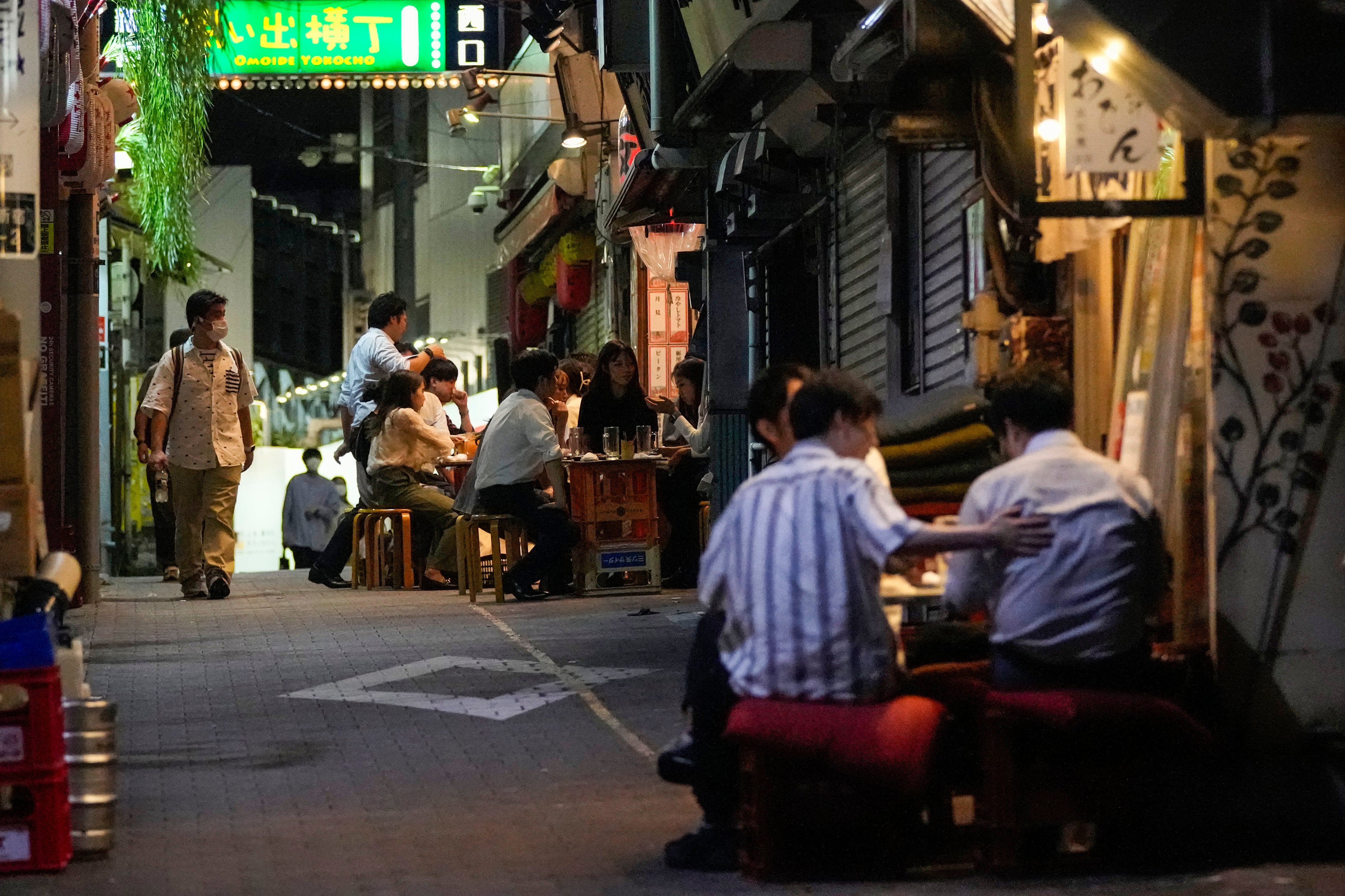Japan set to lift all virus emergency steps nationwide
Japan is set to lift all coronavirus emergency measures when they expire later this week as infections slow and the nation tries to reactivate its economy

Your support helps us to tell the story
From reproductive rights to climate change to Big Tech, The Independent is on the ground when the story is developing. Whether it's investigating the financials of Elon Musk's pro-Trump PAC or producing our latest documentary, 'The A Word', which shines a light on the American women fighting for reproductive rights, we know how important it is to parse out the facts from the messaging.
At such a critical moment in US history, we need reporters on the ground. Your donation allows us to keep sending journalists to speak to both sides of the story.
The Independent is trusted by Americans across the entire political spectrum. And unlike many other quality news outlets, we choose not to lock Americans out of our reporting and analysis with paywalls. We believe quality journalism should be available to everyone, paid for by those who can afford it.
Your support makes all the difference.Japan is set to lift all coronavirus emergency measures when they expire later this week as the infections slow and the nation tries to reactivate its economy.
Officials in charge of coronavirus measures sought advice from experts at a meeting Tuesday, with some experts favoring a partial easing of restrictions first. Prime Minister Yoshihide Suga is expected to announce a lifting of the emergency and subsequent plans later Tuesday.
If all measures are lifted, Japan will be entirely free of any emergency requirement for the first time since April. Government officials are preparing for the relaxed restrictions by instituting other plans such as vaccine passports and virus tests.
The emergency and other measures in all 27 prefectures expire at the end of September. Some experts want the state of emergency in 19 areas to be eased to a quasi-emergency first to ensure infections don't quickly rebound, and the government is reportedly considering the strategy.
The emergency has mainly been in the form of requests for restaurants and bars to open for shorter hours and not serve alcohol. Governors in Osaka, Hyogo and Kyoto have said they plan to keep those requests in place while closely monitoring the virus situations.
Japan is eager to expand social and economic activities while balancing the need to prevent the next wave of infections. The government, which is in transition as the governing party chooses a replacement for Suga later this week, is under pressure to maintain effective virus strategies ahead of parliamentary elections in two months.
Health Minister Norihisa Tamura cautioned people to stay on guard as cooler weather raises concern about a resurgence.
He said eateries and other commercial establishments currently closing early should return to normal hours gradually while the authorities reinforce health care systems to prepare for the next outbreak.
Japan’s ongoing and fifth state of emergency declared in April was repeatedly extended and expanded, turning into the longest since the pandemic began last year. Despite public weariness and frustration over the measures, Japan has managed to avoid the more restrictive lockdowns imposed elsewhere while recording about 1.69 million cases of infection and 17,500 deaths from COVID-19.
Infections started to worsen in July and peaked in mid-August after the Olympics, surging above 5,000 cases in Tokyo alone and topping 25,000 nationwide. Thousands of patients unable to find hospital beds had to ride out the illness at home.
Olympics and government officials deny the games directly caused the upsurge, but experts said the festive atmosphere made people more socially active and it was indirectly responsible.
Suga decided to step down from party leadership and the premiership after facing criticism over his government's virus measures and his insistence on holding the Olympics during a pandemic despite public opposition.
Daily reported cases have fallen to around 2,000 nationwide — less than one-tenth of the mid-August peak. Experts attributed the declining numbers to the progress of vaccinations — 56% of the population is fully vaccinated — and to people increasing their social distancing efforts after being alarmed by the collapse of medical systems.
Vaccinations minister Taro Kono recently said Japan is also preparing to start administering boosters — a third shot for those who have already received two — to medial personnel by the end of this year and to elderly people early next year.